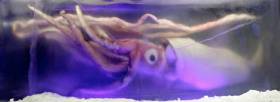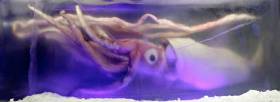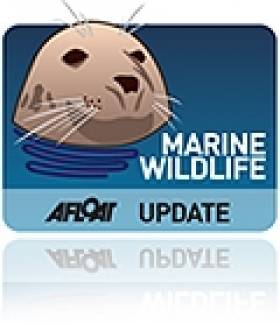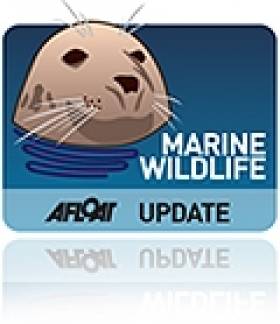Displaying items by tag: Giant Squid
Kerry Trawler Lands Second Giant Squid In As Many Months
#MarineWildlife - Once was exciting enough — but a Kerry trawler had landed a second giant squid in as many months, as RTÉ News reports.
Local fisherman Pete Flannery landed what was the first giant squid recorded in Irish waters for 22 years in mid May, as previously reported on Afloat.ie.
But amazingly, he had repeated the feat this month while trawling in the same area, on the Porcupine Bank west of Dingle.
Before this year, only five of the enormous cephalopods had been found in Irish waters since records began in 1673.
What’s more, two of those squid were landed by Flannery’s own father Michael back in 1995.
“I'll probably have to catch a third now so that I can have bragging rights,” Flannery told RTÉ News, which has more on the story HERE.
Another Giant Squid landed in Dingle. Only 7th recorded in Ireland in 350 years. Amazingly 4 have been caught by Flannery family! @rtenews pic.twitter.com/1gWBYZr045
— Seán Mac an tSíthigh (@Buailtin) July 18, 2017
Elsewhere, a Galway man recorded video of a killer whale carcass washed up on the shore near Roundstone in Connemara.
Independent.ie reports that the orca sighting was confirmed by the Irish Whale and Dolphin Group, whose Mick O’Connell said the species is “neither common nor very rare [but] you wouldn’t see then very often.”
Ireland’s North Coast is a regular haunt for an “evolutionary significant” pod of killer whales that has been under threat for years due to its lack of young.
#GiantSquid - A giant squid measuring nearly six metres in length has been caught off Dingle in Co Kerry — the first encounter with the rare ocean creature in Irish waters in 22 years, as TheJournal.ie reports.
Fisherman Pete Flannery landed the elusive cephalopod while trawling on the Porcupine Bank this past Monday 15 May.
And the remains are now in the case of Dingle’s Oceanworld Aquarium before transfer to the Natural History Museum in Dublin.
Described as “very rare” in Irish waters by aquarium director Kevin Flannery, only five giant squid have been found here since records began in 1673.
The first live footage of a giant squid anywhere in the world was only captured earlier this decade.
TheJournal.ie has more on the story HERE.
Irish Scientist's Role In Remarkable Giant Squid Discovery
#MarineWildlife - An Irish marine scientist has contributed to new research which seems to indicate that all giant squid in the world's oceans belong to a single species.
The Irish Times reports that Dr Louise Allcock of the Ryan Institute at NUI Galway is part of the team at the University of Copenhagen that has published its findings in the Proceedings of the Royal Society journal.
In studying the genetic code of the mysterious ocean beasts - which until the 1800s were thought to be a myth - the team discovered that what were previously thought to be distinct species for each of the world's major oceans seem to be related as a single population.
The team described the "extremely low genetic variability" they discovered among the squid samples taken from around the world as a "very unusual" development.
Live footage of the rarely seen marine creatures was captured for the first time last summer by a documentary crew in Japanese waters, as previously reported on Afloat.ie.
Live Giant Squid Filmed For First Time
#MarineWildlife - The video above is a world first for marine biology - the first known footage of a living giant squid in the ocean.
The remains of the elusive beast have been captured before, but news has now come out that a team of marine scientists finally recorded video of a living specimen deep below the surface off Japan's Ogasawara islands.
As RTÉ News reports, last July the team - working on a documentary for Discovery and Japanese TV network NHK - used a small submersible equipped with near-infrared lights invisible to both squid and human eyes.
After 100 attempts, they finally attracted the attention of a three-metre long cephalopod - small by giant squid standards, but the largest ever seen alive.
"It was stunning." said zoologist and team leader Tsunemi Kubodera. "I couldn't have dreamt that it would be so beautiful. It was such a wonderful creature."
The documentary Monster Squid: The Giant Is Real will be broadcast on the Discovery Channel in the US on 27 January, and hopefully will appear on Discovery UK & Ireland soon after.



























































